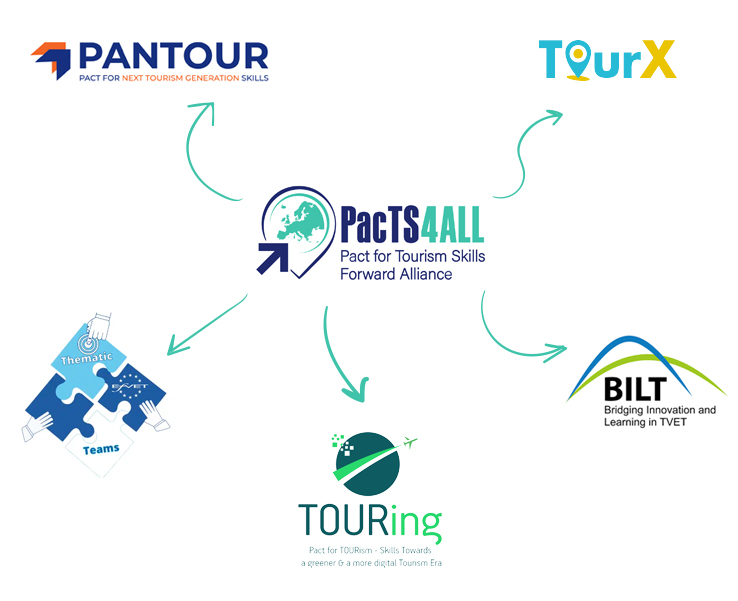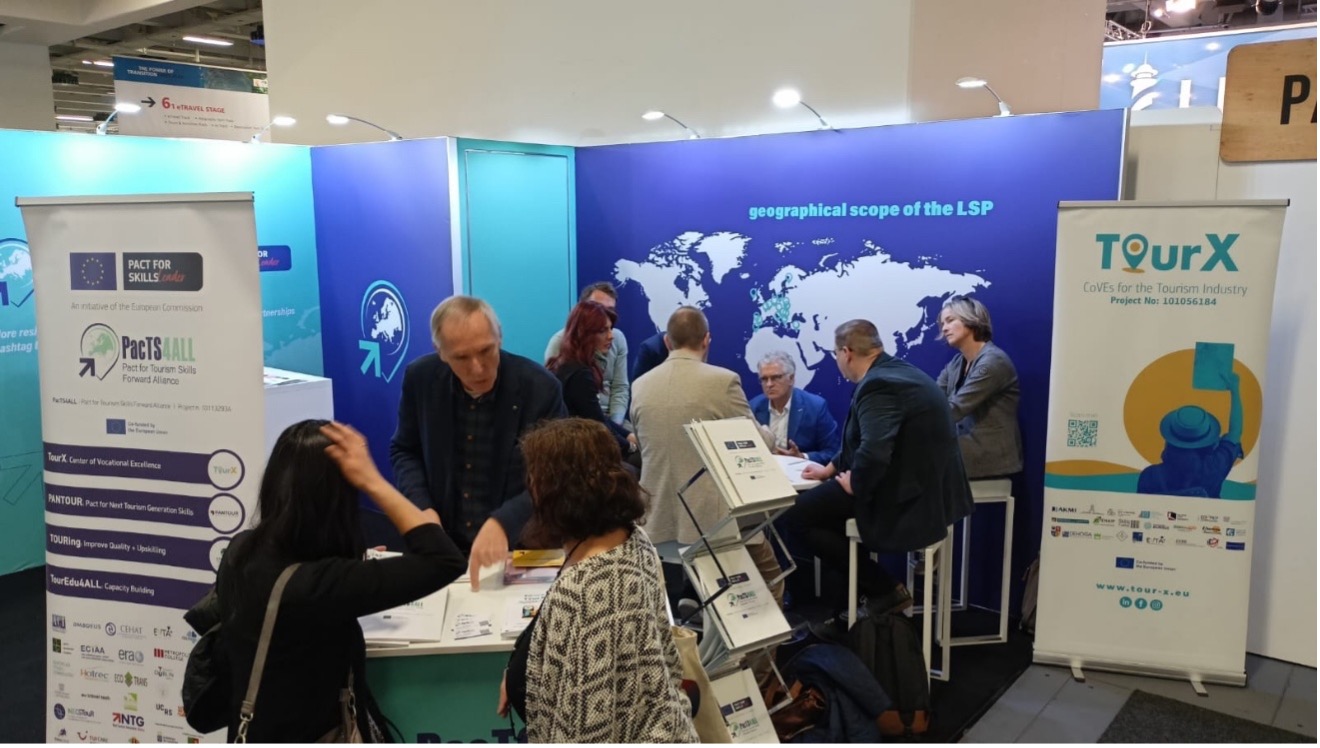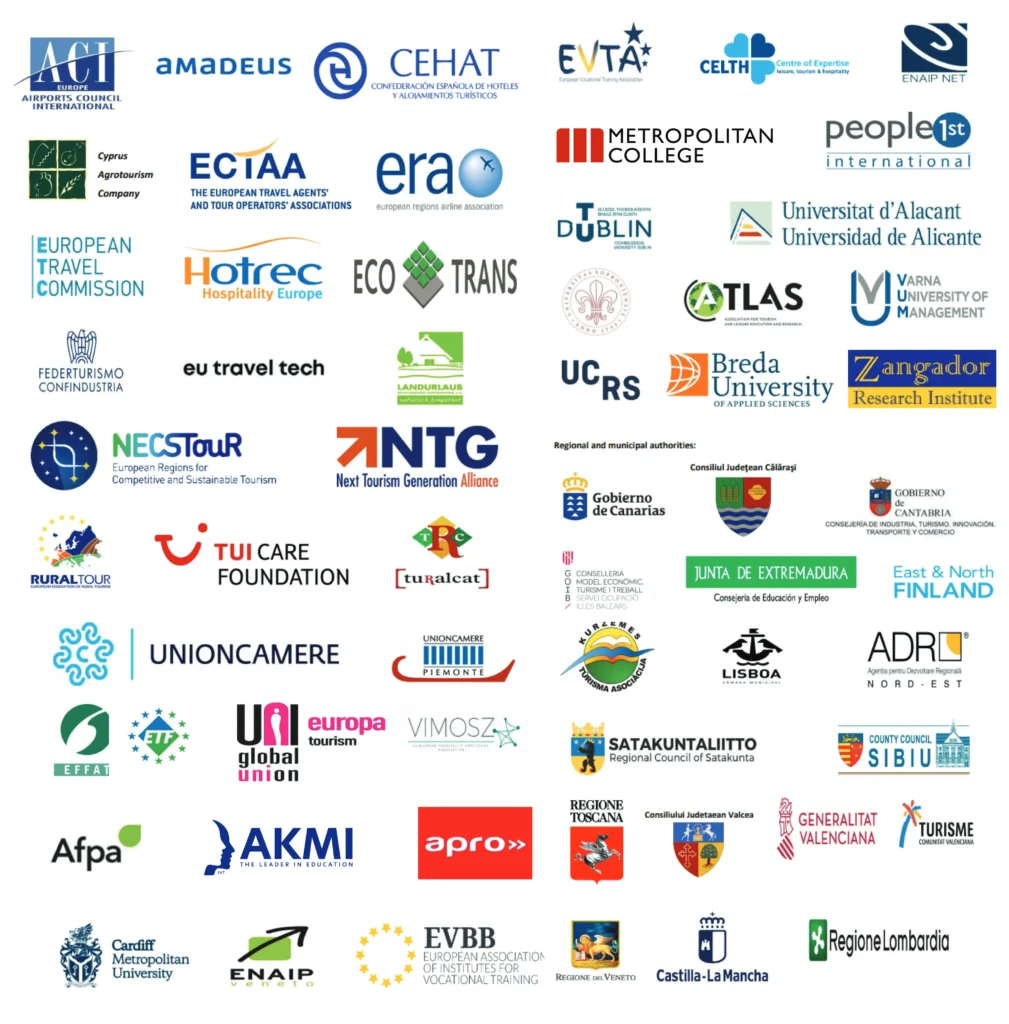Pact for Skills in Tourism

The Pact for Skills is a strategic, long-term initiative by the European Commission aimed at driving the upskilling and reskilling of the workforce across key industrial ecosystems. Tourism is one of them.
The Pact for Skills in Tourism offers a collaborative platform for organizations dedicated to strengthening workforce skills within the sector. It aims to address current and emerging challenges by promoting cooperation among stakeholders for upskilling, reskilling, monitoring and anticipating skill needs.
Within this framework, a Large-Scale Skills Partnership (LSP) is established, consisting of public authorities, industry leaders, social partners, Small and Medium-sized Enterprises (SMEs), Vocational Education and Training (VET) providers, Non-Governmental Organizations (NGOs) and tourism professionals committed to the sustainable growth of the sector. It has already been joined by over 100 members.
WHAT ARE THE OBJECTIVES
The Pact for Skills in Tourism sets the vision of 12 objectives and indicators, to be achieved until 2030 across Europe.
They include amongst others:
Improving and extending the skills
of the full tourism workforce
More hands-on learning and training
through blended concepts Retain current workers, and attract new employees to work in tourism
Detect new skills at an early stage
and provide quick training opportunities to avoid gaps
HOW CAN YOU BENEFIT
- Improve the qualification of work force with skills that they really need
- Tourism services get more competitive and resilient
- Quality of jobs – higher motivation of your team and less fluctuation of staff
- Quick detection of new skills requirements in tourism
- Direct participation in education and implementation policies
- Tailor-made training programmes that fit your local and regional needs Experience exchange with other regions and countries
The Tourism LSP / Pact for Skills in Tourism is branded and supported by PacTS4ALL (Pact for Tourism Skills Forward Alliance through a strategic combination of coordination, outreach, and visibility actions. It brings together LSP signatories, tourism professionals and experts while additionally being supported by tourism Blueprint (PANTOUR) and CoVE (TourX) actions to achieve its objectives and expand its impact across Europe.

TourX
envisions to create excellence in Tourism through a bottom-up approach where the Education providers of the partnership will enhance their ability to adapt skills provision to everchanging economic and social needs.

PANTOUR
project is the continuation of NTG - Next Tourism Generation Alliance, so a Blueprint which aims to map out competencies in tourism and hospitality as they evolve, with a perspective until 2030.
Visibility and concrete impact of the Pact for Skills in Tourism LSP includes presence at international fairs, conferences, regional events, and direct outreach to over 2000 stakeholders.

HOW CAN YOU PARTICIPATE
The Pact for Skills in Tourism will yield best results where needs are concrete and practical political decisions can be taken: in the member states of the EU and its regions. For this reason, the first of the 12 above-mentioned objectives is setting up National or Regional Skills Partnerships (NRSPs).
These partnerships include representatives from all sub-sectors and sizes of tourism services, education and training system, destinations, and the public sector. They shall set up an annual work programme around concrete objectives that address concrete issues related with skills in their area. This will include detection of gaps between required and existing skills levels; new skills, competences and/or occupational profiles required for the sector; concerted design and planning of annual training programmes etc.
NEXT STEPS
Inform your organisation about your wish to participate.
The entities that distribute this document agreed to work together in the process of setting up National Regional Skills Partnerships. Interest will be gathered and evaluated at EU level for further targeted joint support actions, with technical assistance provided by the PacTS4ALL consortium.
Large-Scale Partnership coordinators and members


